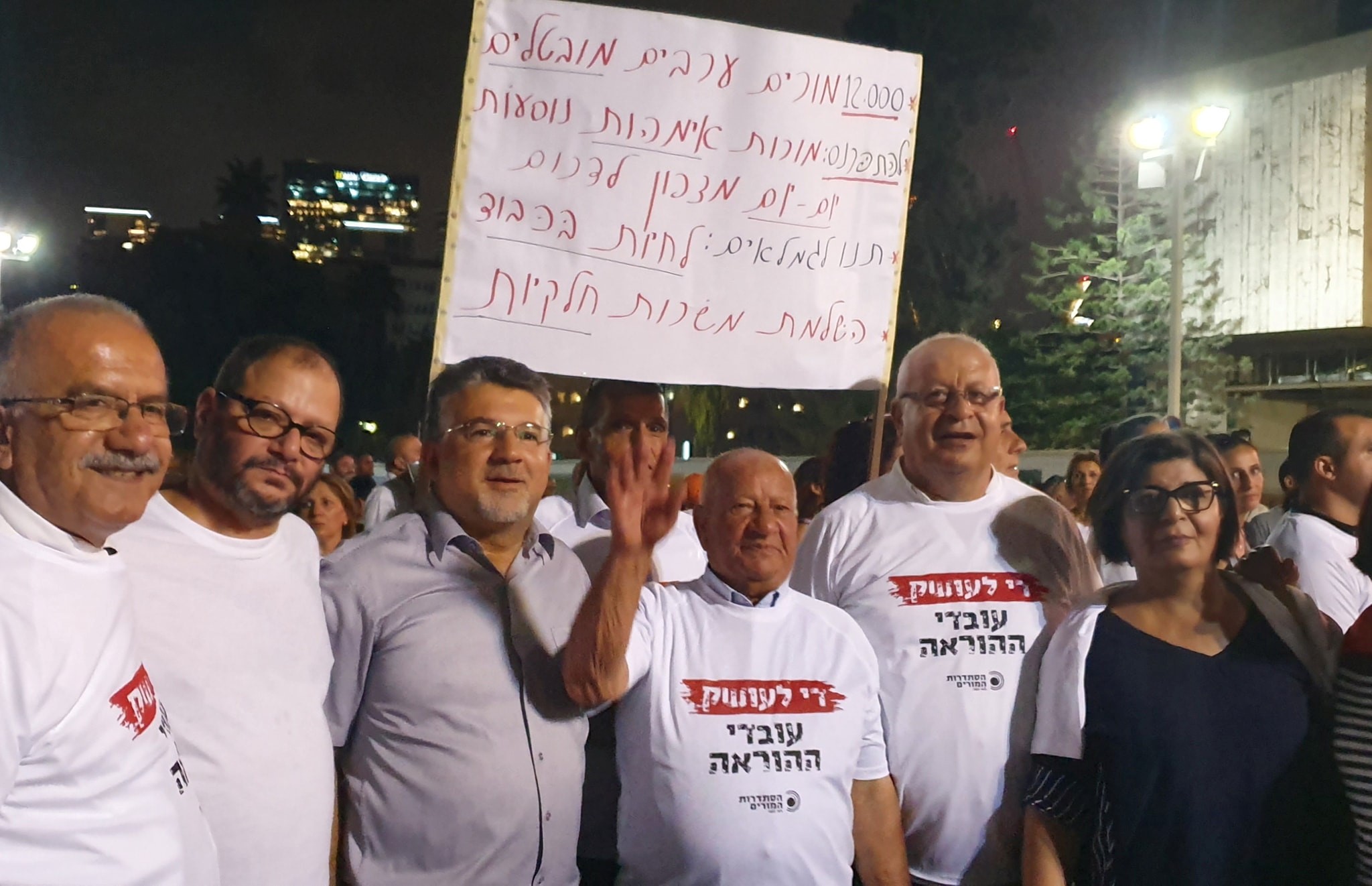Negotiations between the Finance Ministry and the Israel Teachers’ Union (ITU) resulted in an agreement on Friday, August 30, which averts a strike at elementary schools that was set to begin today, Sunday, September 1, the first day of the new school year. ITU General-Secretary Yaffa Ben-David said the agreement was “an unprecedented achievement for the teachers of the country.”

Hadash MKs Ofer Cassif and Youssef Jabareen (second and third from left) and Teacher’s Union activists from Hadash during the demonstration held in Tel Aviv, last Thursday night, August 29; the sign reads: “*12,000 unemployed Arab teachers; *To earn a living, teachers who are mothers travel daily from the north to the south; *Let pensioners live with honor; *Make part-time jobs full-time.” (Photo: Zo Haderech)
On Thursday night, 2,000 teachers demonstrated outside the Tel Aviv Museum, in an attempt to pressure the Education and Finance ministries to accede to their demands, most of which focus on pensions, the proposed reforms for special education, and conditions for teachers who work at multiple schools. Among the demonstrators were Hadash MKs Ofer Cassif and Youssef Jabareen and Hadash activists in the ITU.
The ITU’s Ben David told the demonstrators, “We are not asking for handouts from anyone. We are asking for compensation for our work. This is the most exhausting profession in Israel.” She continued: “Until now, educators have worked even when they were entirely exhausted. They continued giving with infinite dedication. There’s a limit to everything – the State of Israel does not respect educators, who are at the forefront of the state.”
The Teachers’ Union attacked the Treasury on Wednesday, August 29, saying, “There are 120,000 teachers in Israel who have become the government’s punching bags, and it is convenient to drop additional tasks on them and not pay them their due. Salaries for new teaching staff, which cannot be discussed right now because we are in a transitional government, will be discussed in a new wage agreement. The Treasury’s people should decide what they want – solutions or slogans,” added a spokesperson for the Teachers’ Union.
The National Labor Court in Jerusalem issued an injunction on Wednesday, August 28, to prevent a strike by the Secondary School Teachers Organization, which threatened to disrupt the start of the new school year for middle and high schools. The Federation of Local Authorities in Israel, the Interior Ministry’s Center for Local Authority, and the municipalities of Jerusalem, Tel Aviv-Jaffa and Haifa submitted the application for the injunction to the labor court.
Demands made by the Secondary School Teachers Organization include providing additional resources for teachers; completing the reform in special education; providing work spaces for teachers; and ending any additional work demanded from teachers that does not receive suitable compensation. The court ordered that a meeting between representatives of the Education Ministry and the Secondary School Teachers Organization be held within two weeks to determine how to continue dealing with issues raised by both parties.
2,000 teachers who are organized by the Koah LaOvdim (Power to the Workers) union will hold a strike this week at the schools of two privatized educational programs: “Hila,” for young people with learning disabilities, and “Shlavim,” that designs programs to combat the dropping out of ultra orthodox children from school.


